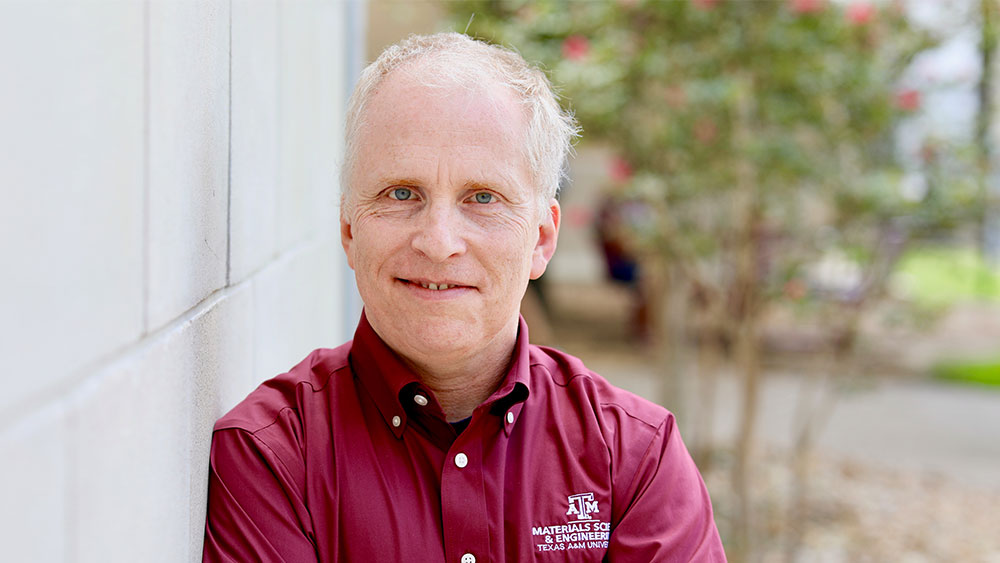
Dr. Jeffrey Bullard received a 2019 Le Châtelier Distinguished Paper award for “Dissolution Rate Spectra of β-Dicalcium Silicate in Water of Varying Activity.” |
Image: Texas A&M Engineering
Dr. Jeffrey Bullard, professor in the Zachry Department of Civil and Environmental Engineering and the Department of Materials Science and Engineering, received a 2019 Le Châtelier Distinguished Paper recognition from the journal Cement and Concrete Research for a paper titled “Dissolution Rate Spectra of β-Dicalcium Silicate in Water of Varying Activity.”
This recognition was announced in early 2022. These awards recognize the significant contributions in research regarding the chemical reactions and physical processes of cementitious materials.
In his award-winning paper, Bullard and his co-authors reported the first-ever measurements of the dissolution rate in water of dicalcium silicate, also called belite, a component of Portland cement. The manufacturing of Portland cement is a major contributor to greenhouse gas emissions across the globe and increasing the amount of belite in cement could potentially cut those emissions by up to 30%. This is not currently done because belite reacts too slowly with water and prevents concrete from gaining strength rapidly enough to be used in construction. Understanding the rate and extent to which belite reacts with water is a significant step toward learning how to increase its reactivity and to use it in greater amounts, making concrete a more eco-friendly material.
Bullard’s research focuses on the thermodynamics and kinetics of materials processing, using both computational materials science and experimental measurements. His group is involved in cement chemistry, mineral dissolution and growth, computational modeling of microstructure, sintering, grain growth and granular media shape analysis.
This recognition was announced in early 2022. These awards recognize the significant contributions in research regarding the chemical reactions and physical processes of cementitious materials.
In his award-winning paper, Bullard and his co-authors reported the first-ever measurements of the dissolution rate in water of dicalcium silicate, also called belite, a component of Portland cement. The manufacturing of Portland cement is a major contributor to greenhouse gas emissions across the globe and increasing the amount of belite in cement could potentially cut those emissions by up to 30%. This is not currently done because belite reacts too slowly with water and prevents concrete from gaining strength rapidly enough to be used in construction. Understanding the rate and extent to which belite reacts with water is a significant step toward learning how to increase its reactivity and to use it in greater amounts, making concrete a more eco-friendly material.
Bullard’s research focuses on the thermodynamics and kinetics of materials processing, using both computational materials science and experimental measurements. His group is involved in cement chemistry, mineral dissolution and growth, computational modeling of microstructure, sintering, grain growth and granular media shape analysis.